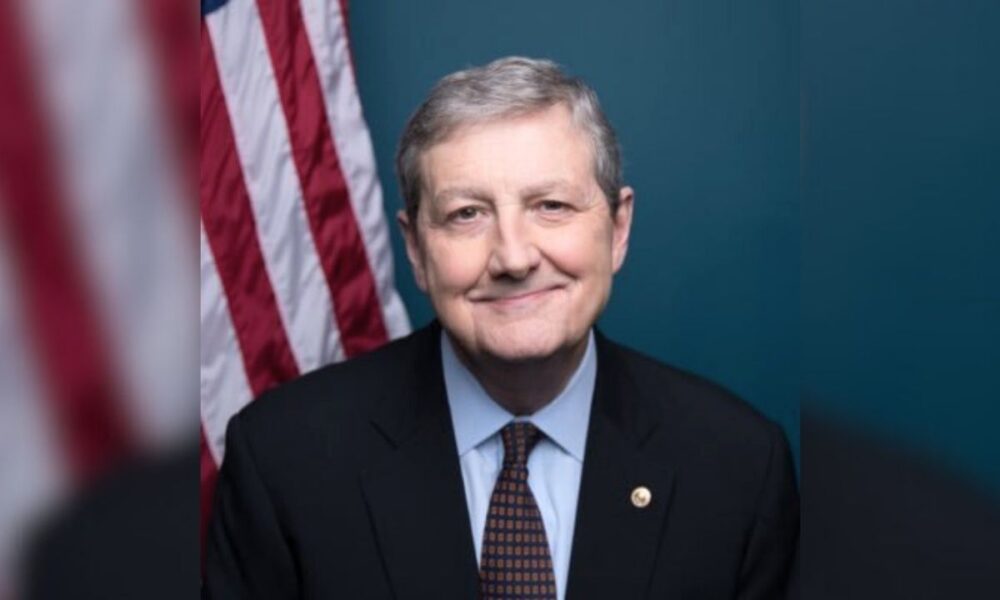The U.S. Senate voted on Wednesday to approve President Donald Trump’s $9 billion rescissions package, a sweeping rollback of federal spending that includes eliminating $1.1 billion in funding for the Corporation for Public Broadcasting (CPB), which supports hundreds of local PBS and NPR stations nationwide.
The vote reignited long-running Republican concerns about political bias in taxpayer-funded media, with Sen. John Kennedy (R-LA) publicly challenging NPR’s claims of neutrality in a viral social media post.
Kennedy Responds To NPR CEO
NPR CEO Katherine Maher appeared on CNN this week defending her network’s editorial standards and inviting critics to identify specific stories they believe reflect political bias.
NPR’s CEO Katherine Maher on CNN this morning: “As far as the accusations that we’re biased, I’d stand up and say, ‘Please show me a story that concerns you.’”
I’ve got a few:
🧵 (1/5) pic.twitter.com/kC1hHmPfHQ
— John Kennedy (@SenJohnKennedy) July 16, 2025
Sen. Kennedy took her up on the offer. In a viral post on X, Kennedy shared a list of NPR headlines he claimed demonstrated ideological slant:
“The taxpayer-funded NPR thinks:
-
Country music is racist
-
Birds are racist
-
Trump-Russia collusion is real
-
Biological men have no advantage in women’s sports
Senate Vote Advances Trump Proposal
The Senate approved the amended rescissions package by a 51–48 vote, maintaining the $1.1 billion CPB cut. The measure also includes reductions to foreign aid programs and climate initiatives.
President Trump praised the vote on Truth Social, writing:
“It is very important that all Republicans adhere to my Recissions Bill and, in particular, DEFUND THE CORPORATION FOR PUBLIC BROADCASTING (PBS and NPR), which is worse than CNN & MSDNC put together.”
The package had previously passed the House in June but must now return there for final approval before the July 18 deadline due to Senate amendments.
Divided Reaction In Congress
While most Republicans backed the cuts, Sens. Susan Collins (R-ME) and Lisa Murkowski (R-AK) opposed them, citing the essential role public stations play in rural and tribal communities, including emergency communications and local programming.
House Speaker Mike Johnson echoed conservative frustrations with public media, stating, “They’re not objective. They pretend to be so. And the people don’t need to fund that.”
Democrats strongly objected. Senate Majority Leader Chuck Schumer (D-NY) warned that the measure could create “news deserts” and compromise public safety by eliminating trusted local broadcast infrastructure.
NPR And PBS Push Back
Maher pointed to NPR’s role in state-level emergency alert systems, arguing that defunding could hinder disaster response efforts.
“Public media, public radio, [and] public television, are a critical part of the emergency response plans of nearly half of the states in this nation,” Maher told CBS News. “If these types of emergency alerting go away, you will have fewer outlets to be able to respond in real time to future natural disasters.”
PBS CEO Paula Kerger also warned the cuts could be devastating to small and rural stations, especially those that rely heavily on CPB grants to broadcast educational children’s programming.
What Comes Next
The House must vote to approve the Senate’s changes by Friday, July 18. If passed, the bill would mark a historic shift in federal support for public broadcasting, potentially forcing NPR and PBS to rely more heavily on private donations, corporate underwriting, or state-level assistance.


